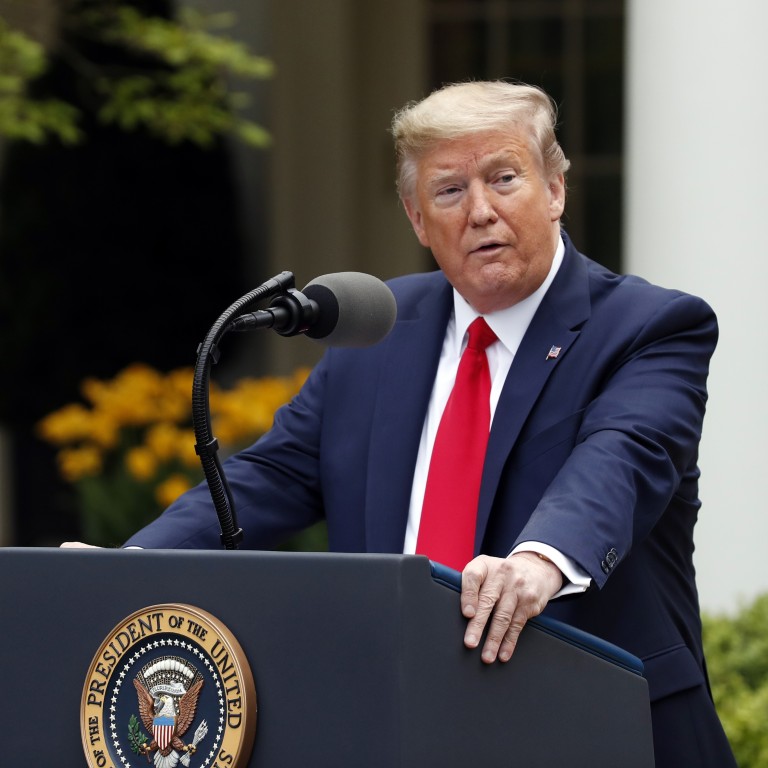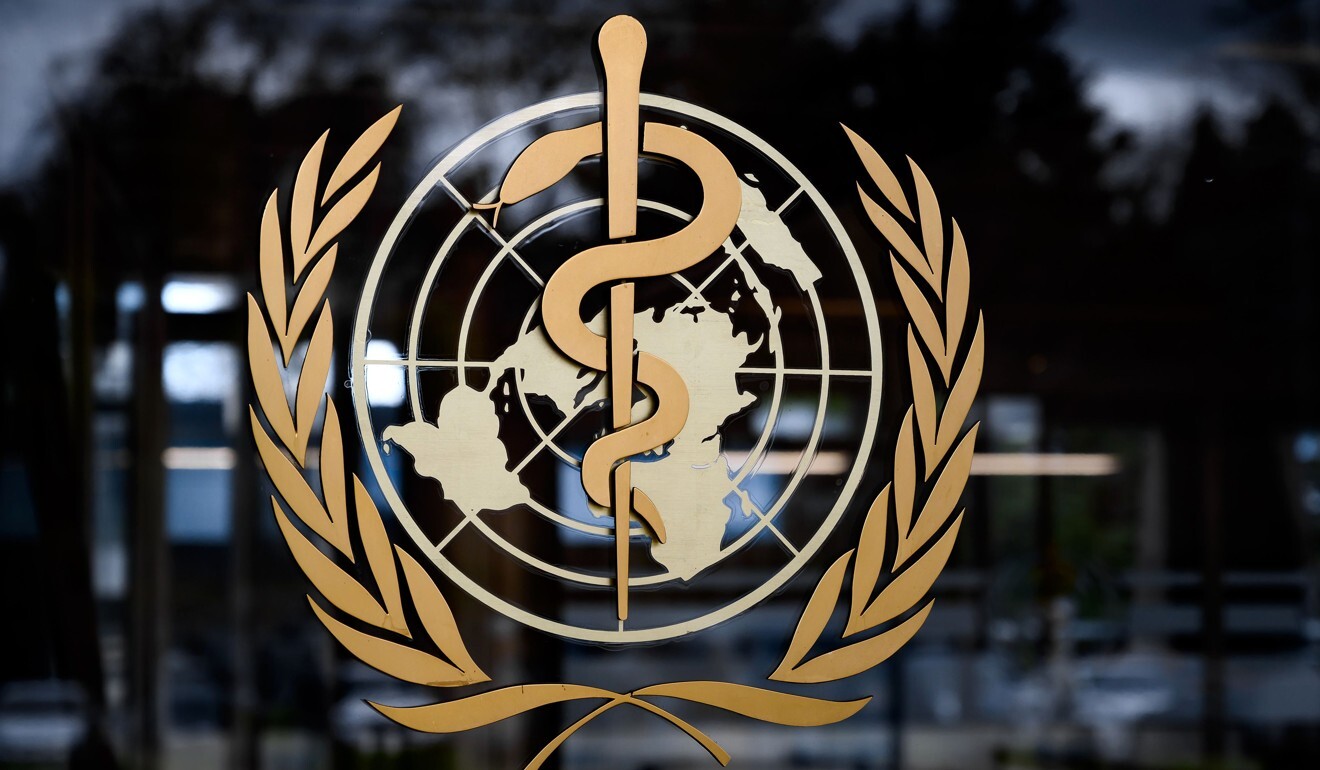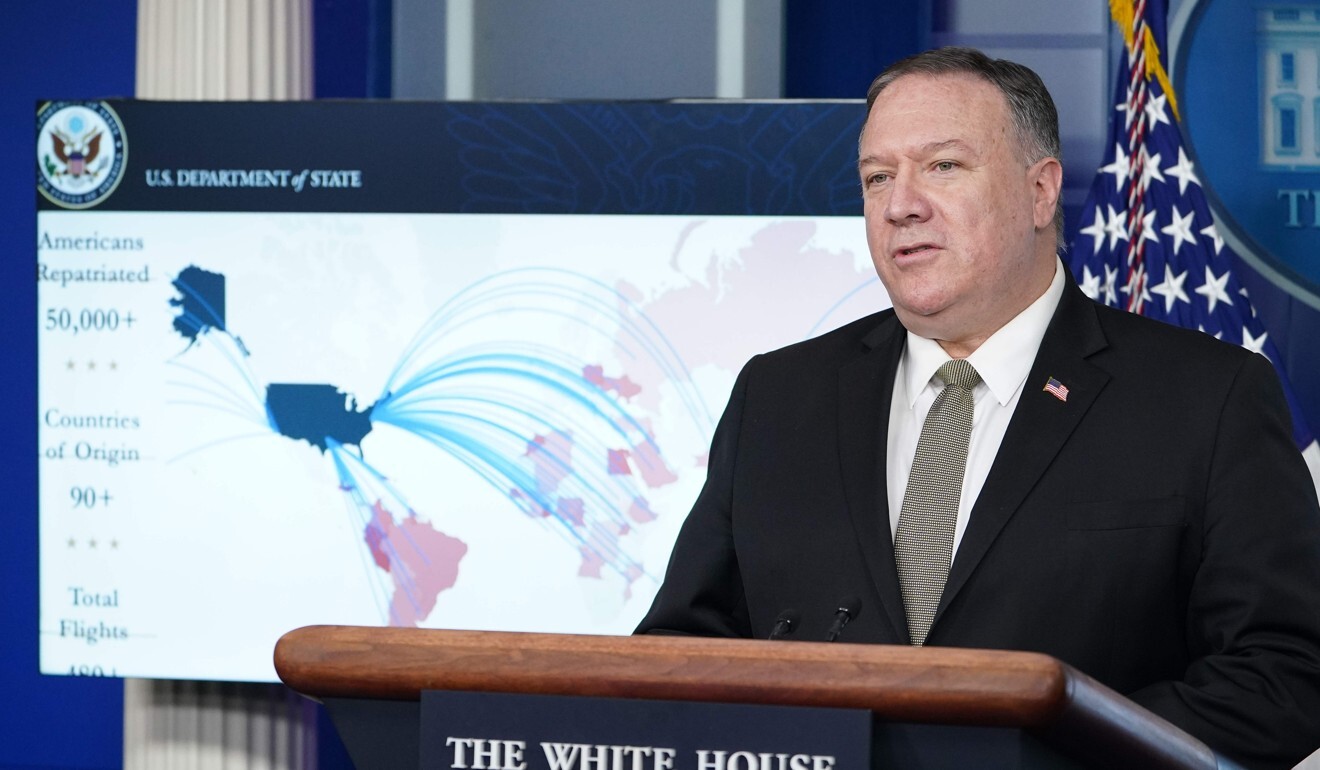
Coronavirus: Donald Trump halts US contributions to World Health Organisation during ‘review’
- US president says his administration will conduct an inquiry into WHO’s ‘role in severely mismanaging and covering up the spread’ of the virus
- Earlier in the day, seven Republican senators demanded WHO records on communication with Chinese authorities between October 1 and March 12
“I’m instructing my administration to halt funding of the World Health Organisation while a review is conducted to assess the World Health Organisation’s role in severely mismanaging and covering up the spread of the coronavirus,” Trump said during the daily White House briefing on the pandemic. He said he planned a 60- to 90-day evaluation period during which funding would be held.
“Other nations and regions who followed WHO guidelines and kept their borders open to China accelerated the pandemic all around the world,” Trump said. “The WHO failed to investigate credible reports from sources in Wuhan that conflicted directly with the Chinese government’s official accounts.”
In a letter sent to WHO chief Tedros Adhanom Ghebreyesus on Tuesday, senators led by Florida’s Rick Scott and Wisconsin’s Ron Johnson charged the WHO with helping Beijing “cover up” the threat of the novel coronavirus, and called into question Congress’ continued funding of the United Nations health agency.
Demanding answers on behalf of “American taxpayers”, the letter requested that Tedros provide all of the WHO leadership’s “electronic records, emails, hard drives and text messages” between October 1 and March 12, along with all data received from and sent to Chinese authorities regarding the coronavirus.
The letter also requested information about whether the WHO had followed its own epidemic protocols in its handling of the outbreak, the dates of when it first knew about the coronavirus and sent investigators to China, and details about any financial compensation WHO leaders receive outside their regular salaries.
Trump continues tirade against WHO, threatens ‘investigation’
“American taxpayers deserve answers about how their taxpayer dollars are spent, and whether Congress should continue to spend millions of dollars every year to fund the WHO,” said the letter, which was signed by seven senators, all Republicans.
The senators’ letter called for a response from the WHO by April 27.
A WHO spokesman declined to comment on the senators’ requests, as well as their accusation that the agency had helped Beijing “cover up” information regarding the coronavirus threat.
Throughout the course of the Covid-19 pandemic, Trump has veered from praising China then blaming it for mishandling the outbreak to stressing the need to work with Beijing.
Trump initially praised China’s containment efforts, even as Beijing was criticised for its early missteps in the outbreak response, including inaction and local cover-ups. At one point, Trump said the US “greatly appreciates” China’s efforts to stop the contagion.
That approach changed last month, when Trump started referring to the coronavirus as the “Chinese virus” as he faced growing criticism for a lack of testing for Covid-19 in the US, a key factor in how the contagion spread so widely in the country.

By the end of last month, Trump took a more cooperative approach to the crisis by dropping that term and agreeing in a phone call with Chinese President Xi Jinping to work more closely with Beijing to bring the pandemic under control.
It was not immediately clear how Trump would suspend WHO funding as any changes in such appropriations need congressional approval.
“The President does not have the unilateral authority to withhold the United States’ contribution to the World Health Organization,” The Wall Street Journal cited Evan Hollander, a spokesperson for the Democratic wing of the House Appropriations Committee as saying on Monday.
“Even if he did, refusing to fund the WHO would only weaken the international tools to fight this pandemic and future global health emergencies,” Hollander said.
WHO leadership, which has been consistently effusive in its praise of China’s epidemic response, has pushed back against suggestions that the agency acted slowly or otherwise played down the threat at the behest of Beijing.
Fielding questions at a briefing on Monday, WHO officials reiterated that the agency had first received notification about clusters of pneumonia-like cases on December 31 and issued alerts to its members soon after, on January 5.
World Health Organisation chief slams US for politicising Covid-19 crisis
Noting that the US Centres for Disease Control and Prevention (CDC) implemented its incident management system two days later, on January 7, Mike Ryan, the WHO’s head of health emergencies, said: “From that perspective the information was shared and very appropriate actions were taken in the United States in response to that alert.”
Some criticism of the WHO has centred upon its amplification of Chinese health authorities’ determination in mid-January that there was no evidence of human-to-human transmission, even as some within the agency suspected the opposite.
“Right from the start, from the first notification that we received on 31st December … I immediately thought, given that it’s a respiratory pathogen, that of course there may be human-to-human transmission,” Maria Van Kerkhove, the WHO’s technical lead on Covid-19, said at Monday’s briefing.
Criticism of the WHO from congressional Republicans has grown in concert with calls from the US administration – a serial critic of international multilateral institutions – for reform of the agency and even deep cuts in US funding.

Tedros, who has urged wealthy countries to step up their funding to address the pandemic, said on Monday that he had a good relationship with Trump and hoped that his support for the WHO’s work would continue.
On Tuesday, Secretary of State Mike Pompeo said the US would push to “fundamentally change” the WHO, though he has not advocated for a change in the organisation’s leadership.
“The World Health Organisation in its history has done some good work,” Pompeo said during a radio appearance on Florida’s Good Morning Orlando. “Unfortunately, here, it didn’t hit the top of its game.”
Citing unnamed sources, The Washington Post reported on Monday that Pompeo and other administration officials intend to offer a number of recommendations on how to reduce or condition Washington’s annual WHO contributions, which stand at around US$400 million.
Sign up now and get a 10% discount (original price US$400) off the China AI Report 2020 by SCMP Research. Learn about the AI ambitions of Alibaba, Baidu & JD.com through our in-depth case studies, and explore new applications of AI across industries. The report also includes exclusive access to webinars to interact with C-level executives from leading China AI companies (via live Q&A sessions). Offer valid until 31 May 2020.


